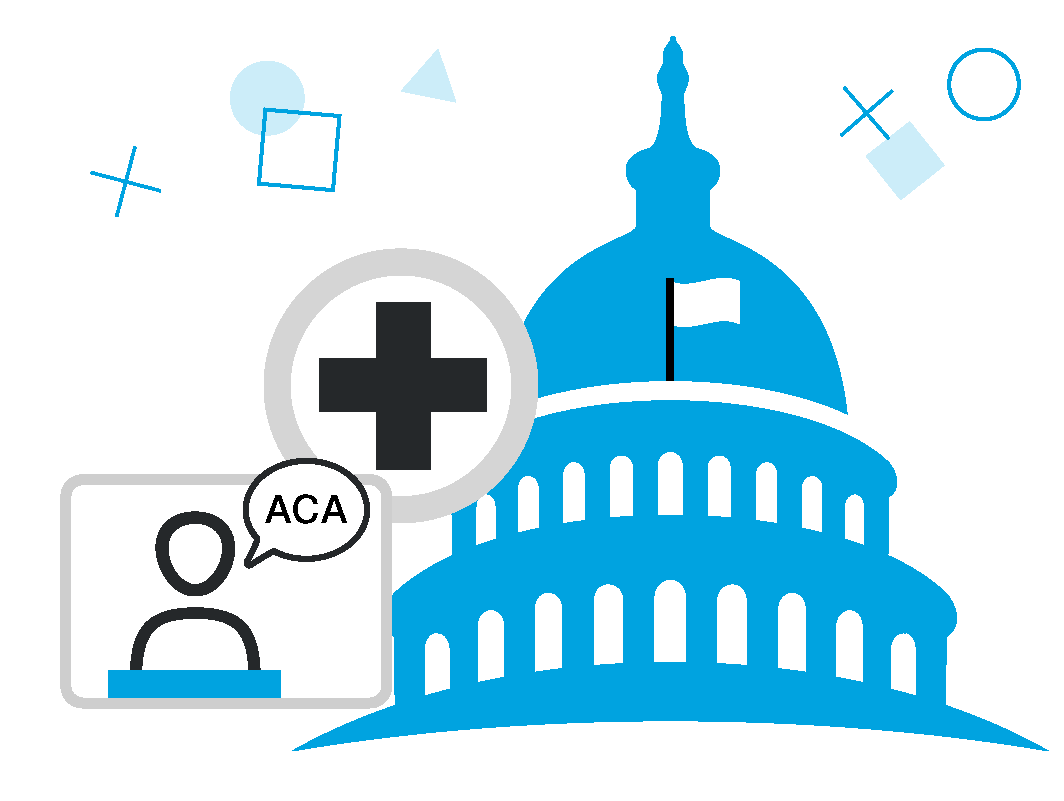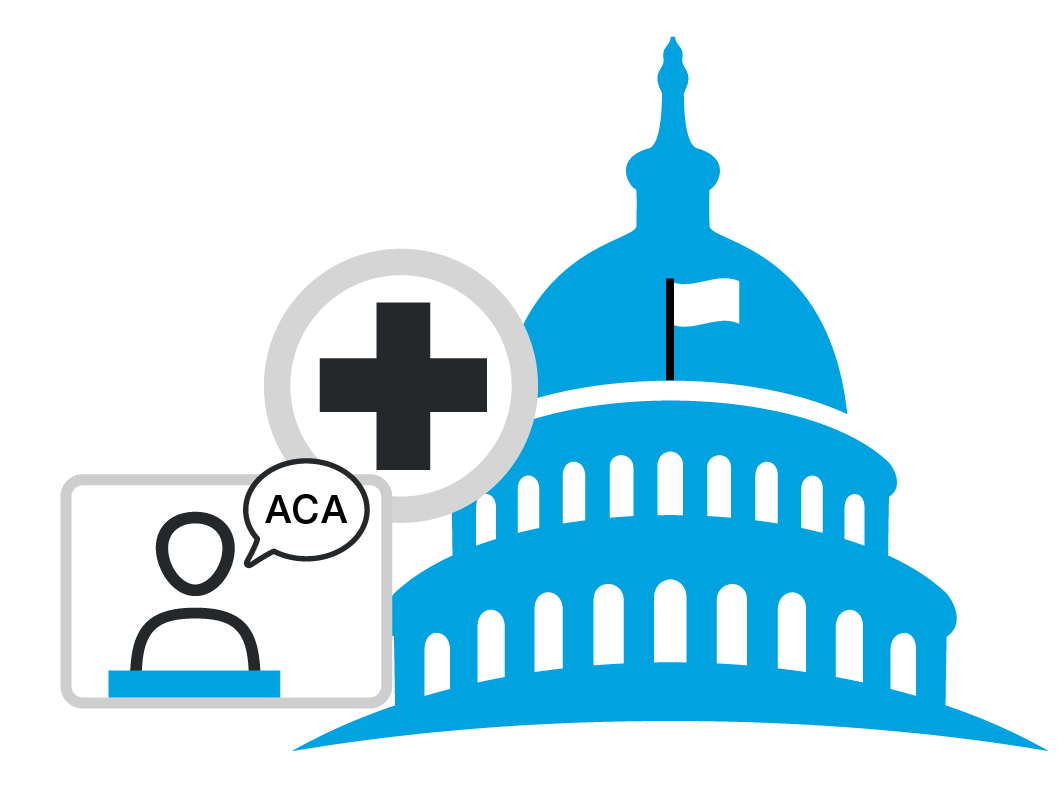The 2024 U.S. Presidential Election is just under two months away. Vice President Kamala Harris secured the Democratic nomination, while former-president Donald Trump won the Republican nomination.
Among the key political talking points between the two candidates is their approach to healthcare. A main point of contention under the healthcare umbrella is what will happen with the Affordable Care Act.
We broke down what the ACA might look like if Harris is elected president. Now, we’ll examine what a Trump presidency would mean for the ACA.
Will the ACA Remain Intact?
The most pressing and obvious issue to address is whether Trump would try to repeal the ACA or replace it. That is less clear than it was six months ago.
Trump unsuccessfully attempted to repeal the ACA during his presidency. However, it did lead to certain aspects of the ACA to be challenged in court. The most prominent case (Braidwood Management Inc. v. Xavier Becerra) dealt with the ACA’s preventive services mandate. A federal appeals court ruled on June 21 to preserve the mandate after it had previously been ruled unconstitutional without the federal Individual Mandate.
In November 2023, Trump indicated he would once again try to repeal the ACA if elected president. However, he walked back those comments in the spring by saying he would make the healthcare law “much better.”
“President Trump is not running to terminate the Affordable Care Act,” Karoline Leavitt, a Trump campaign spokeswoman, said in a statement to the New York Times. “He is running to make health care actually affordable.”
His running mate, JD Vance, echoed Trump’s in-between position when he told the news site NOTUS recently that past efforts to repeal the law were “fundamentally focused around the idea of fixing what was broken, not about stripping people’s health care away.”
“You’re certainly going to see efforts to reform the system,” Vance added.
Under the Biden administration, health coverage obtained through state and federal marketplaces reached a record-high participation of over 21 million last fall.
Thus, it’s become increasingly risky from a political standpoint for Trump to move forward with any plan to repeal the ACA without a viable plan for a replacement, which has yet to be offered. Therefore, it’s unlikely the ACA would go away under a Trump presidency.
What About Premium Tax Credits?
While we don’t anticipate any repeal of the ACA under a Trump presidency, there could be significant changes from a compliance standpoint. The most pressing issue is the potential expiration of Premium Tax Credits (PTC), which were extended through 2025 by the Inflation Reduction Act.
President Joe Biden has called for making the expanded tax credit permanent to avoid driving up insurance premium costs. However, that could be undercut by a Republican-led government pushing for tax cuts.
As the growing national debt plays a larger role, some political observers note that PTC’s price tag could become an attractive target for Trump and a Republican-led Congress eager to cut spending.
This would remove a notable compliance hurdle for employers if it came to fruition. While expanded PTC eligibility benefits employees and their families, it also raises compliance risks for employers. PTCs serve as triggers for the IRS to identify potential ACA non-compliance.
When an employee receives a PTC from a state or federal health exchange, the IRS cross-references the request with the employer’s ACA filings to identify organizations that may not be compliant with the ACA’s Employer Mandate.
Other healthcare observers note that it’s just as likely the Trump administration would reduce spending on advertising and shorten enrollment periods. This is likely to lead to a reduction in employees who enroll in the ACA plans, but would maintain the same compliance aspects for employers.
Other Potential Changes in ACA Compliance
There’s a version of a Trump presidency that could actually lead to additional ACA compliance requirements for employers. Some Republican lawmakers have suggested changing the marketplaces to improve the quality and affordability of plans.
Alex M. Azar II, the former health and human services secretary under Trump, told the Times that a future Republican administration would likely pursue more “technocratic” adjustments to the ACA — a reflection of how difficult it would be to unwind the law.
The Paragon Health Institute, a conservative think tank, outlined a proposed ACA reform policy to combat a rise in fraudulent enrollment in ACA exchange plans:
- Congress should permit the enhanced subsidies to expire after 2025;
- Congress should raise subsidy recapture limits to reduce incentives for people to misestimate their income;
- Congress or the next administration should limit automatic re-enrollment into exchange plans and end it for people moving from or into fully-taxpayer subsidized plans;
- Congress should appropriate cost-sharing reduction payments and prohibit silver-loading;
- Congress should conduct aggressive oversight of the Biden administration’s management of HealthCare.gov, enhanced direct enrollment, and insurer and broker actions to take advantage of misestimating income;
- Congress or the next administration should reverse policies of the Biden administration that enabled such widespread fraudulent enrollment, particularly the continuous open-enrollment period for people who report they have income below 150 percent FPL.
While it’s difficult to project the compliance ramifications of such a plan, it could:
- Narrow furnishing deadlines;
- Update affordability safe harbors;
- Change Minimum Value under the Employer Mandate;
- Lead to additional state requirements.
While this is subject to change once in office, what’s clear is employers will still have ACA compliance responsibilities under a Trump presidency. What’s unclear is what exactly those responsibilities will be and if there will be less of a burden on employers.
ACA Compliance Remains Imperative
So, come this November, there’s a lot at stake when it comes to healthcare and the ACA. Regardless, employers should remain diligent in keeping up with the responsibilities of the ACA’s Employer Mandate as the IRS increases its focus and attention to detail on non-compliance.
If you need assistance with ACA compliance and the subsequent year-end filing, contact Trusaic. Our comprehensive ACA Complete software offers all the resources employers need to achieve full ACA compliance and eliminate penalty risk.
From preparing 1095-C forms and conducting monthly monitoring to performing safe harbor calculations, handling year-end ACA filings, and providing IRS audit defense, Trusaic has assisted thousands of clients in eliminating billions in ACA penalties.






